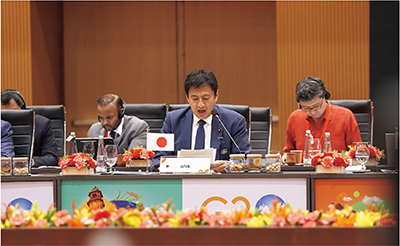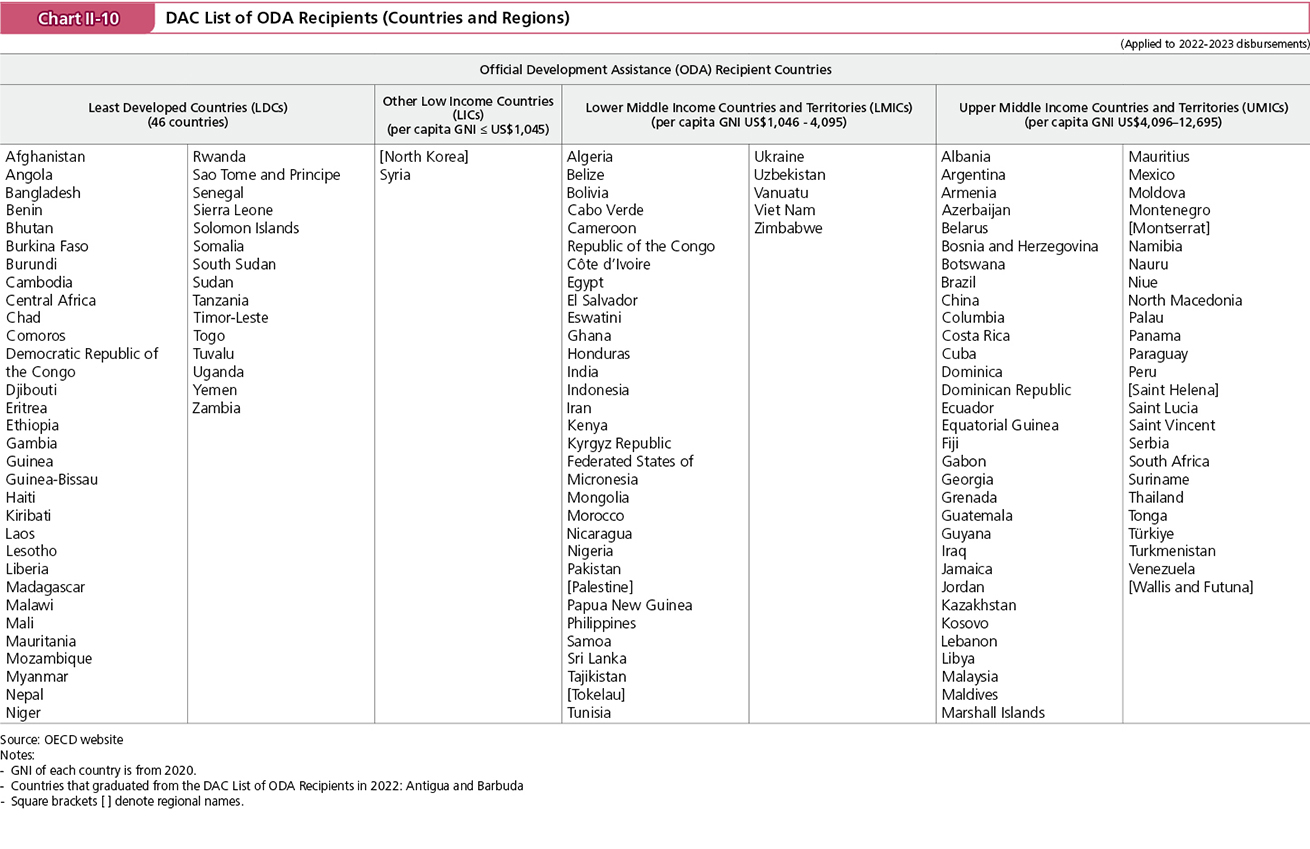3 Increasing Development Cooperation to Developing Countries by Emerging Donors and the Private-Sector

Then State Minister for Foreign Affairs Takei attending the G20 Development Ministerial Meeting
Recent years have seen an increase in aid for developing countries provided by non-DAC emerging donors, such as China, India, Indonesia, Saudi Arabia, Brazil, Argentina, Mexico, Türkiye, South Africa, and private foundations, in addition to the DAC members. Although only a few non-DAC countries report to DAC, according to DAC statistics alone, the total amount of aid provided in 2022 was more than 17.9 billion US dollars by non-DAC countries, more than 231 billion US dollars of private funds by both DAC and non-DAC countries, and 56.1 billion US dollars by NGOs.Note 9
As the Political Declaration adopted at the SDG Summit 2023 in September 2023 states, “We are deeply concerned by the marked increase of the estimated SDG financing gap and recognize the urgency of providing predictable, sustainable and sufficient development finance to developing countries from all sources.” Thus funding by various actors must be directed to developing countries in order to achieve the SDGs.
While the flow of funds to developing countries is diversifying, it is essential to accurately grasp the flow of funds and to effectively utilize limited development finance in order for the international community to promote development cooperation in a coordinated manner. However, the statistics prepared and published by the DAC do not reveal the full details of aid for developing countries provided by non-DAC countries. It has also been pointed out that there are opaque and unfair lending practices that do not conform to international rules and standards.
Under these circumstances, the need for the transparency of development finance and other related matters continued to be discussed at various international forums in 2023, including the G7, G20, and the OECD. In the G7, which Japan assumed the Presidency of in 2023, the Chair’s Summary of the G7 Senior Development Officials (SDOs) meeting in February and the G7 Foreign Ministers’ Communiqué in April confirmed the determination to promote transparent and fair development finance practices and to work together to address the implementation gap of existing principles. Based on the discussions at these meetings, at the G7 Hiroshima Summit held in May, Prime Minister Kishida led the discussions as Chair of the G7 and called for the promotion of transparent and fair development finance. The G7 leaders confirmed this in the G7 Hiroshima Leaders’ Communiqué, stating their “determination to promote transparent and fair development finance and work together to address the gap in implementing existing principles such as debt transparency and sustainability, fair appraisal, selection, and lending practices for quality infrastructure investment.”
In the G20, then State Minister for Foreign Affairs Takei attended the G20 Development Ministerial Meeting in June and highlighted the importance that all creditor and debtor countries promote transparent and fair development finance that complies with international rules and standards. The outcome document of this meeting stated that “the G20 reaffirms the importance of promoting development finance respecting the applicable finance related principles.” Based on the discussions at these meetings, at the G20 New Delhi Summit held in September, Prime Minister Kishida stated that more creditor and debtor countries would need to share the importance of transparent and fair development finance that complies with international rules and standards, and that the G20 should also promote such efforts.
In addition, the Communiqué adopted at the OECD’s DAC High Level Meeting in November called on all providers of development cooperation to adhere more closely to international standards and practices that improve transparency and accountability in development cooperation globally. The Communiqué also stated that borrower countries and official bilateral and private creditors would need to work together to prevent and resolve unsustainable debt situations.
Japan will continue to work with the international community to ensure that aid for developing countries, provided by emerging donors including China, is transparent and consistent with international standards and initiatives (see also Part III, Section 1 (4) and Part V, Section 1 (2)).

- Note 9: OECD database (OECD.Stat) (December 2023)
